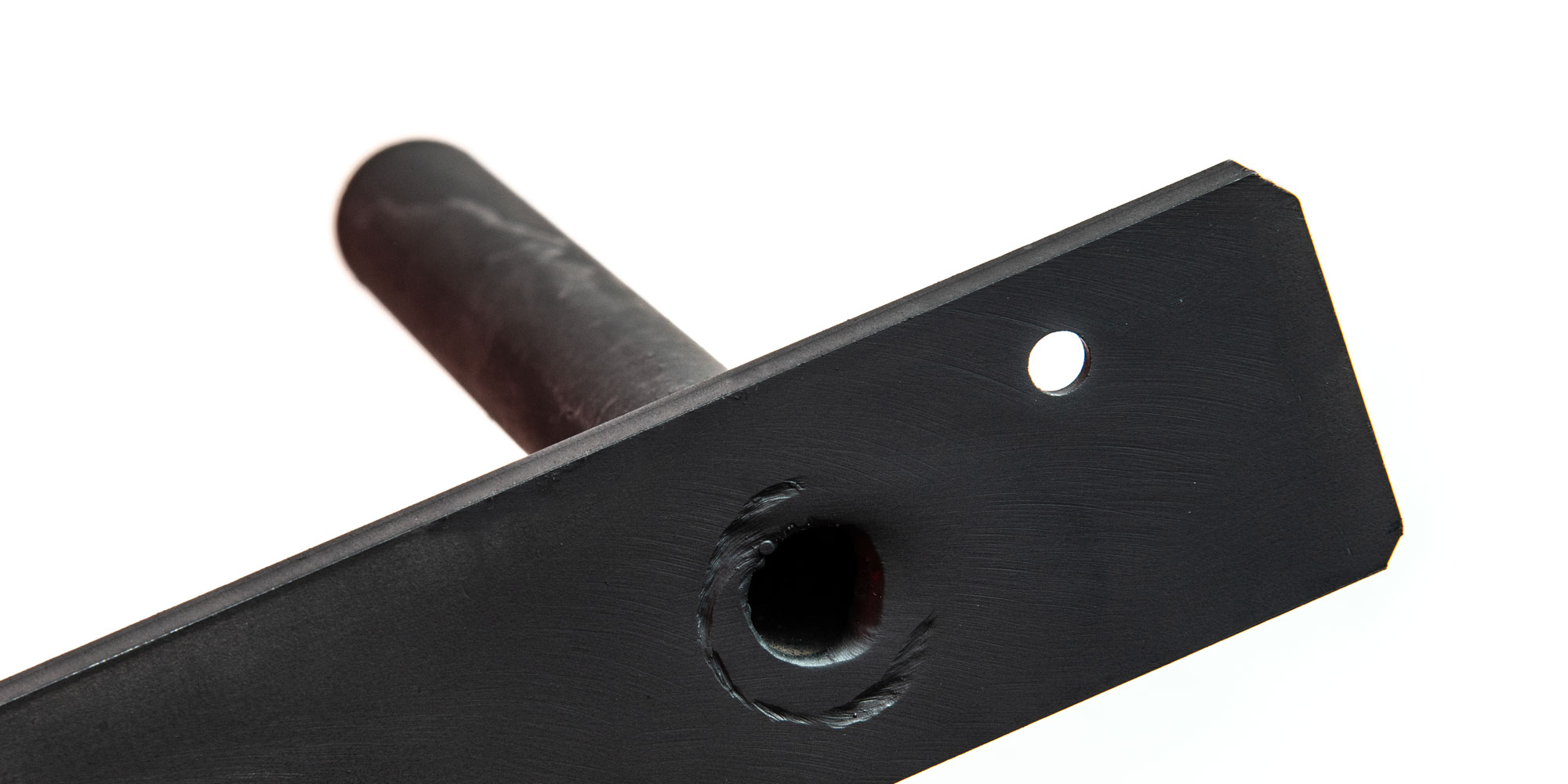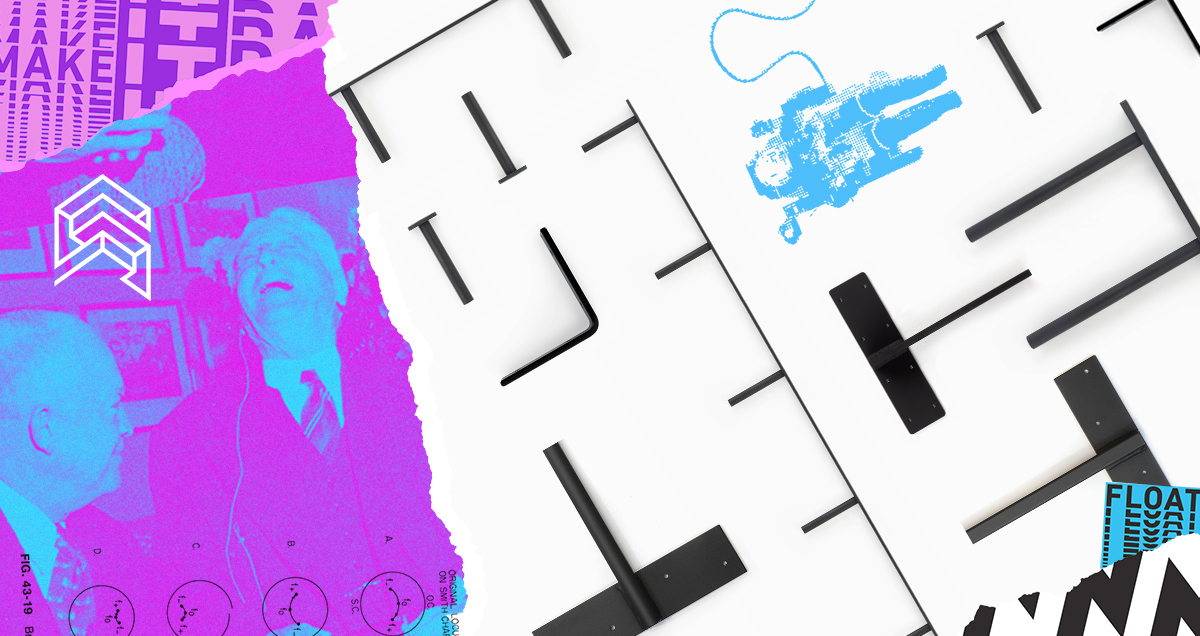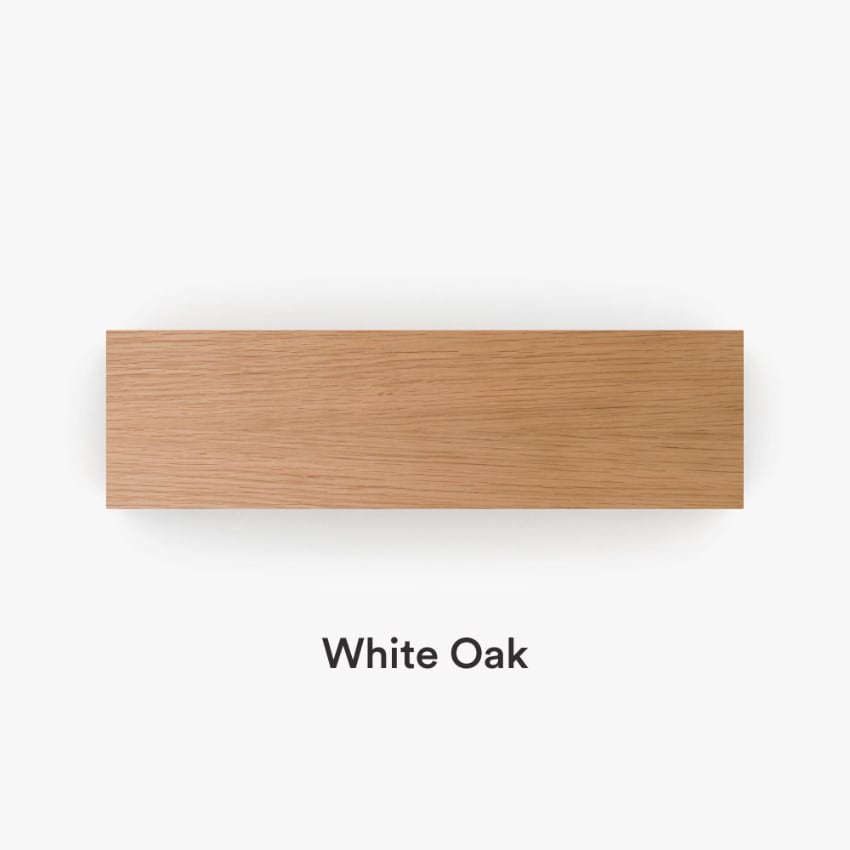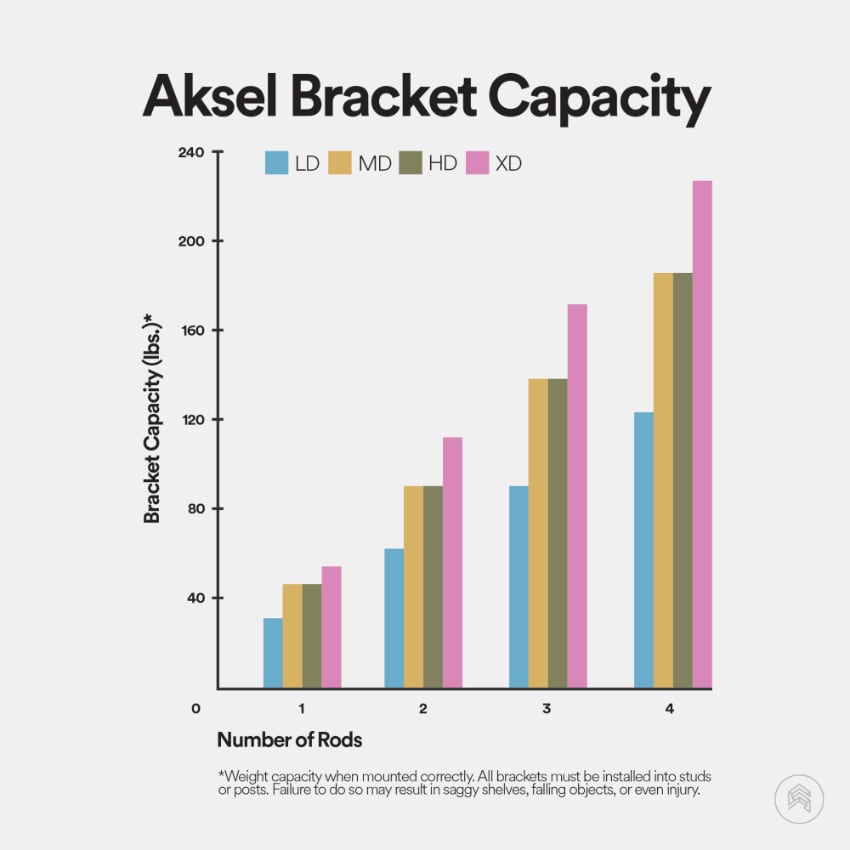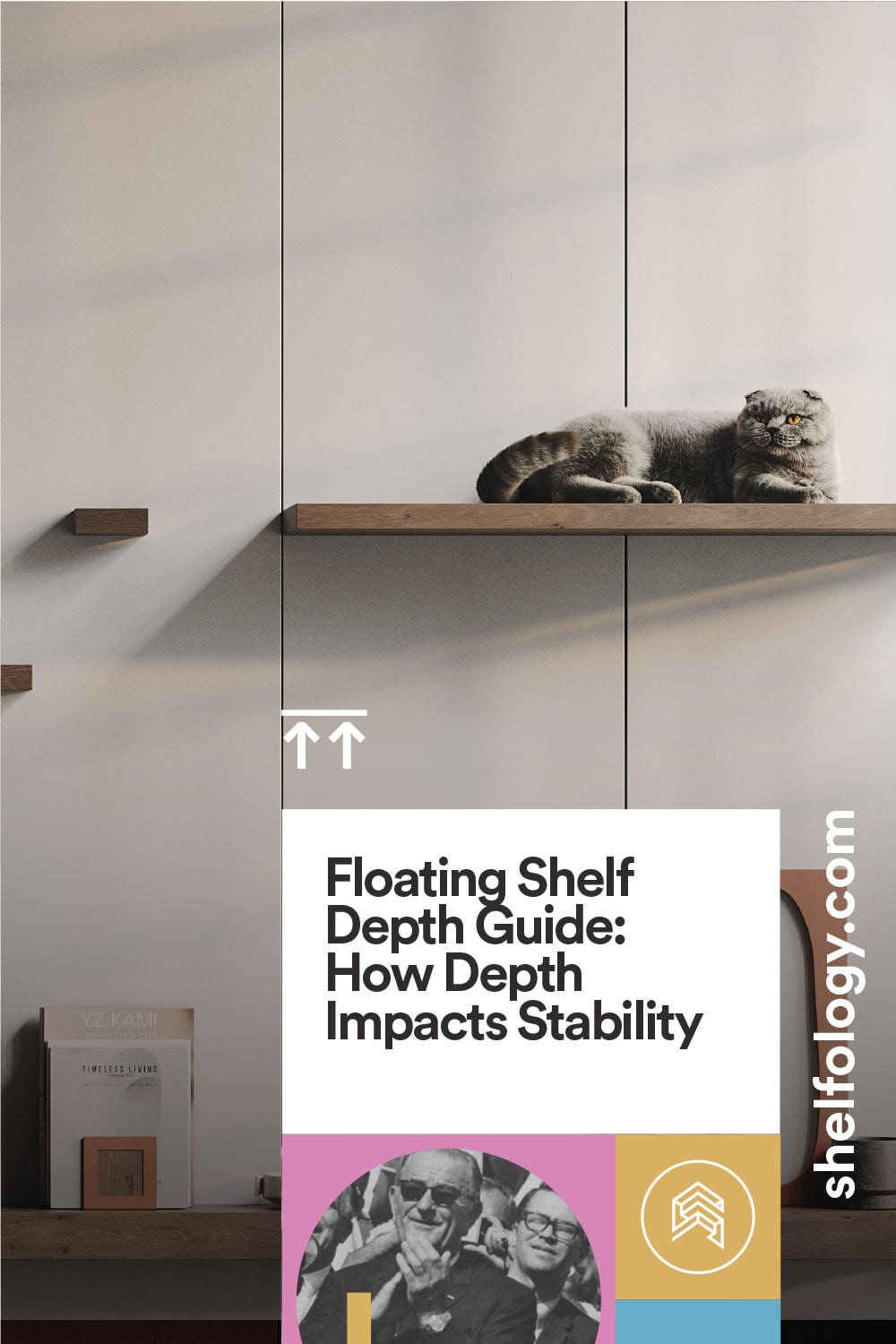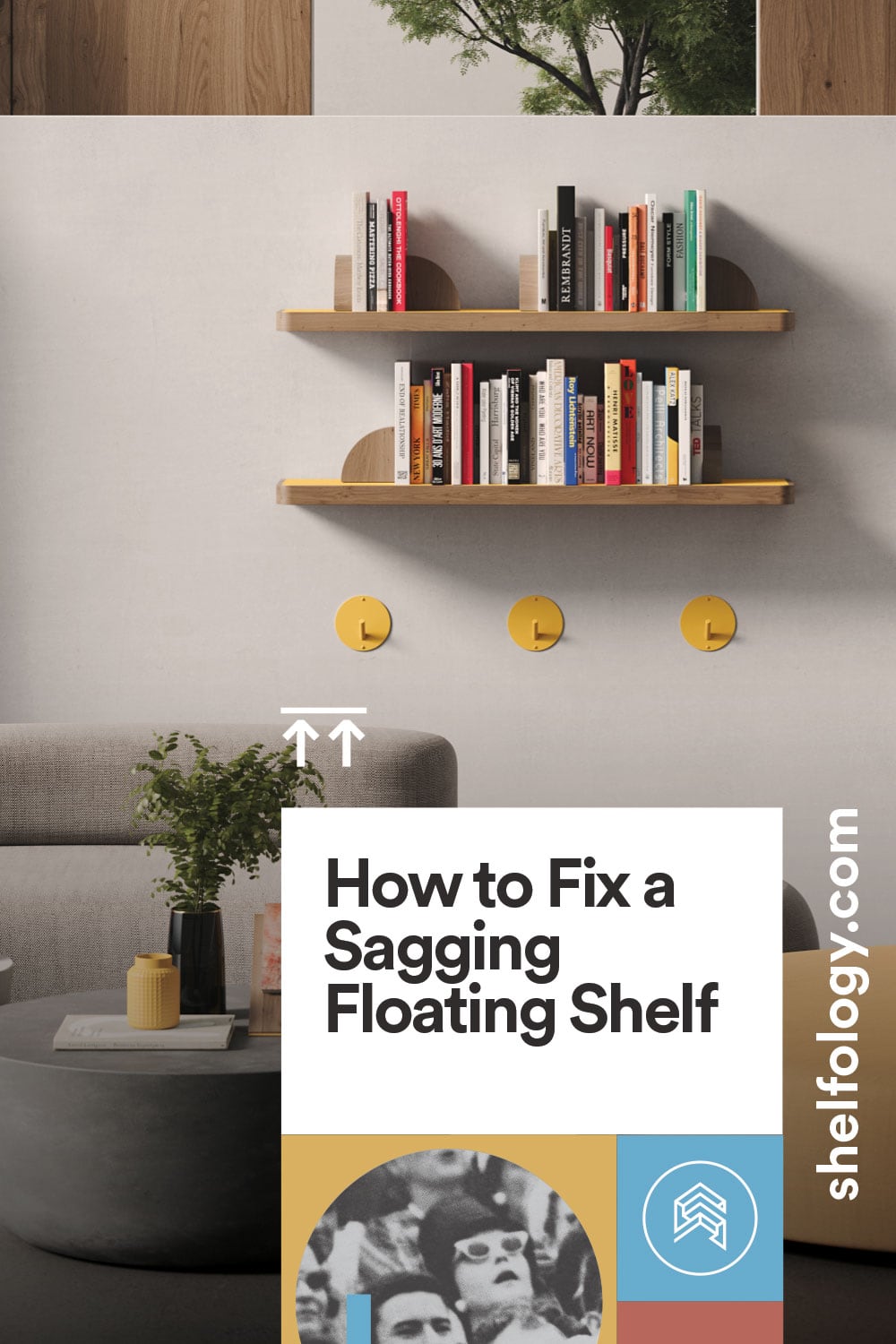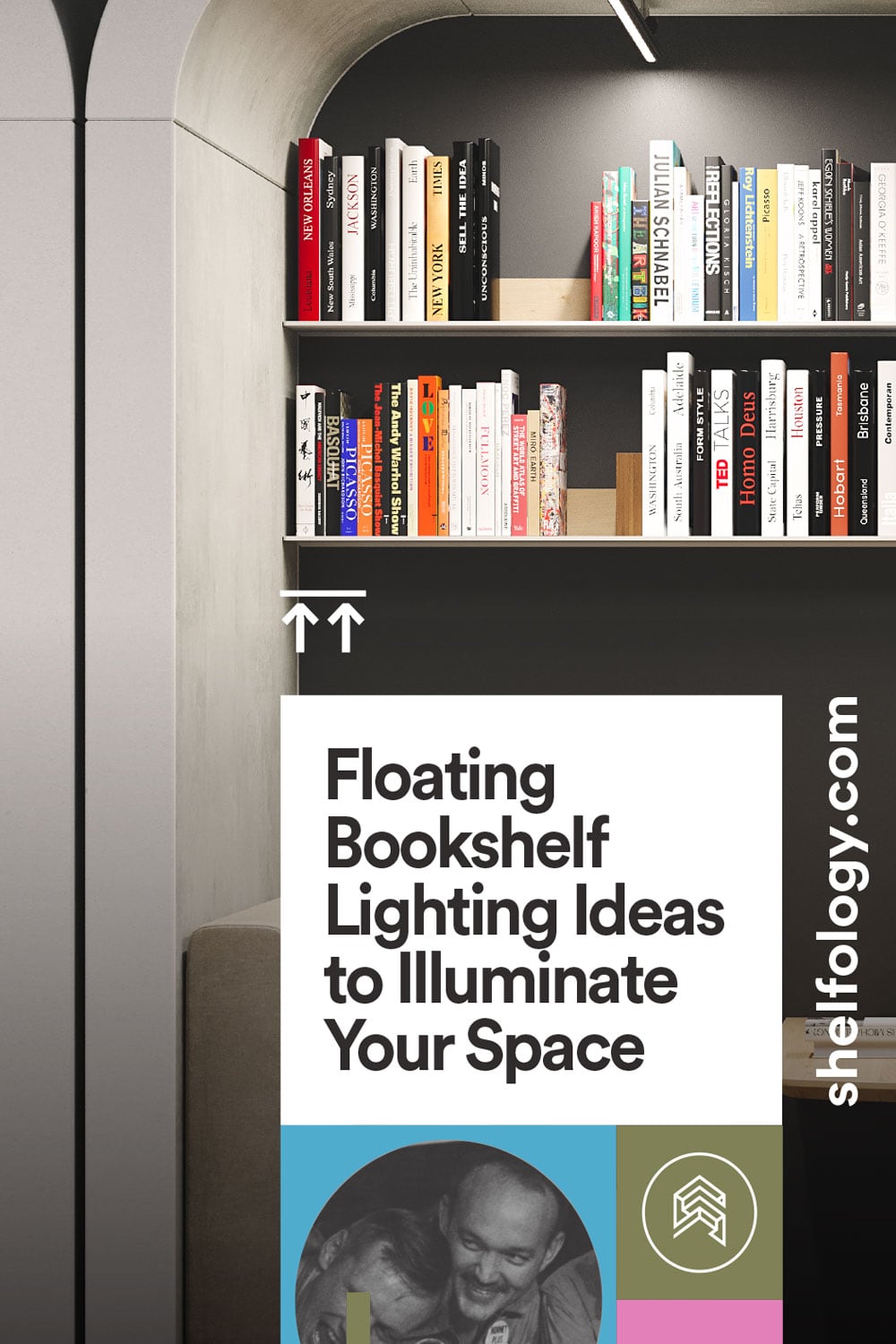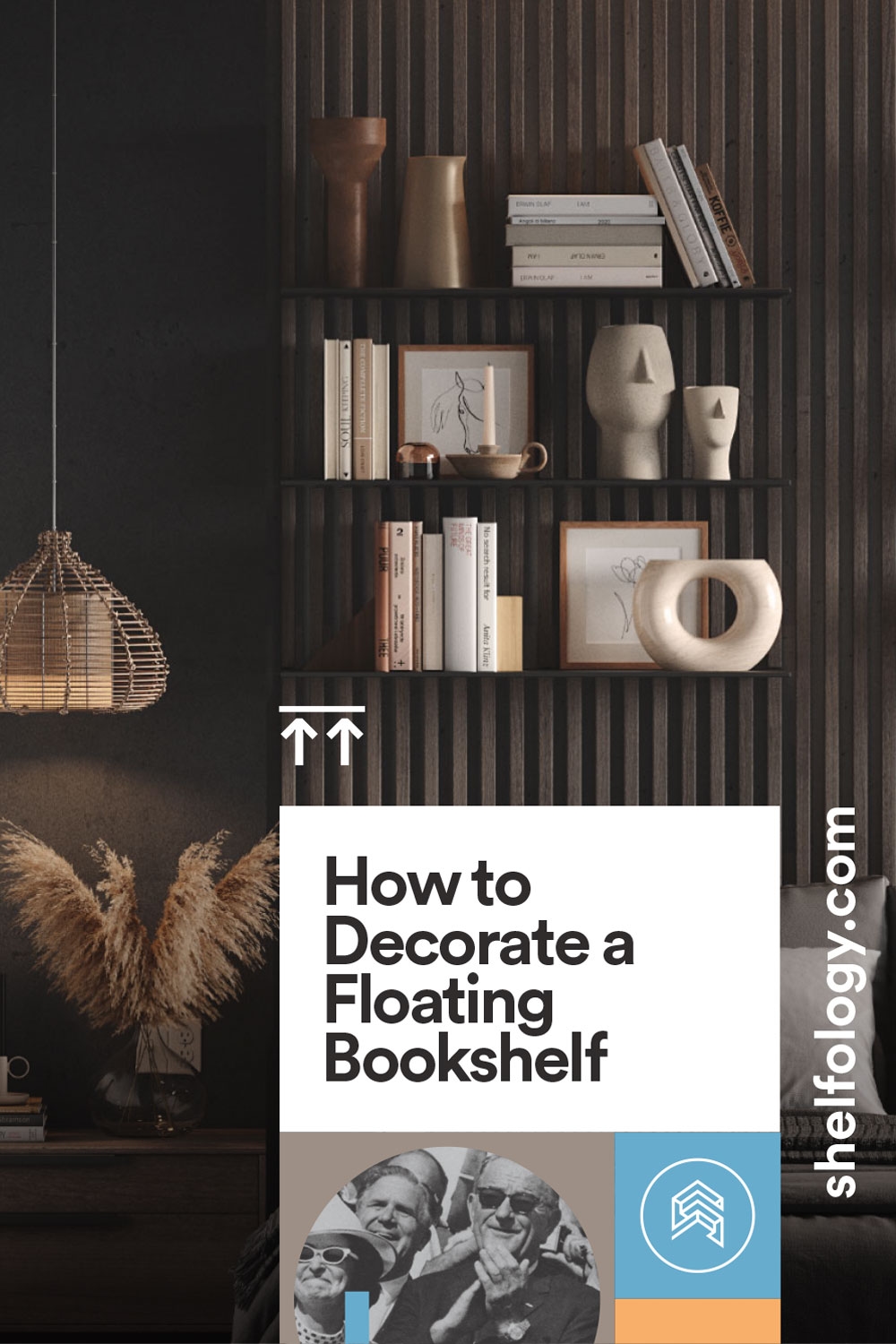Greetings and salutations, budding Shelfologists! So, you’ve got a gnarly book collection that you’d like to float on your wall. Today, we’re going to tackle one super common question we hear all the time: are floating shelves strong enough for books?
TLDR: YES! A quality floating shelf that has been properly installed can support 40–50 pounds of books (or anything!) per attachment point. So, a floating shelf attached to 2 or 3 wall studs can easily support 120–150 lbs and could therefore hold up even the choicest of libraries. And more to the point, we can unequivocally state that Yes! Shelfology floating shelves can hold lots of books! But fore a complete explanation about floating bookshelves' depth capacity, read on!

But what about cheaper alternatives on Etsy and Amazon?
While the big box stores may put out some cute (and cheap!) floating shelves, unless you are talking about a couple of Curious George books, those cute, cheap shelves don’t exactly inspire confidence—especially if installed overhead! So, how do you pick a floating shelf that is worthy of your book collection?
The 5 Factors That Determine Your Shelf’s “Worthiness”
Is your shelf worthy of holding up your library of books? Let’s take a look at the five factors that will help you determine whether or not you should trust your trusty floating shelves to begin with.
Strength Factor #1: The Wall Itself
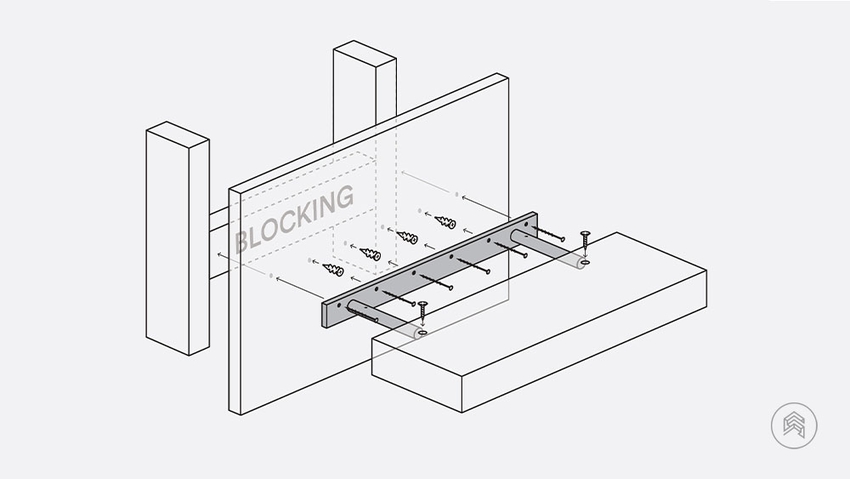
That’s right. Every good engineer will tell you that the foundation will make or break your project. We don’t care how much you spent on your shelving—if your stuff isn’t attached to your wall properly, it doesn’t matter how heavy-duty your shelf is. Let me explain what I mean.
Drywall
Drywall creates a smooth, even surface for finishing a room. This can be painted, wallpapered, or paneled over. However—and listen closely—it is not to be trusted for hanging a shelf. Drywall, also known as sheetrock, is just a bunch of hardened plaster between two sheets of thick paper. Would you trust that to hold up your books? Didn’t think so.
But, Shelfology, what about drywall anchors?!
Yes and no. Be careful with this. Drywall anchors are rated for certain poundage per anchor, but the constant weight on these anchors can open the drywall up and cause sagging and tipping in your shelves. So, you know, anchors away… at your own risk.
Studs *wink*
(No, we’re talking the wall kind, bruh. Studs are those vertical boards inside your wall that are made of soft wood like pine or spruce. These allow you to anchor into the bones of your home for maximum strength and resistance to everyone’s nemesis: gravity. You should never ever ever hang a floating bookshelf that doesn’t connect to at least two studs. Don’t do it; you’ll regret it.
Masonry
Oh boy, there’s nothing quite like a sleek shelf hanging effortlessly on a white brick wall. But… how did it even get up there?
That’s right, masonry bits and hardware. This is, hands down, the most secure attachment for your shelving, but it’s (obviously) not always possible. Just make sure you have the right tools for the job if you’ll be hanging your floating shelving on a brick, cement, or tiled wall.
Read More:
Strength Factor #2: Your Floating Shelf’s Hardware

The next factor we need to discuss is the shelf’s actual hardware. This consists of all of the metal attachment pieces you’ll be drilling into your wall. Here are a few pointers:
-
You want to see nice, ch0nky, all-steel pieces here. The metal hardware should feel heavy. We’re trusting it to hold up books after all.
-
Carefully follow the directions for predrilling your hardware into your wall. They’ve included sizes for bits for a reason.
-
Ensure that the hardware fits tightly with the shelf board. Loose boards are not a good sign.
-
For the strongest shelves, look for mounting hardware with full-length rods that slide into the shelf board. You shouldn’t be relying on construction adhesive to keep your shelves up.
Read More:
Strength Factor #3: The Shelf Board Itself
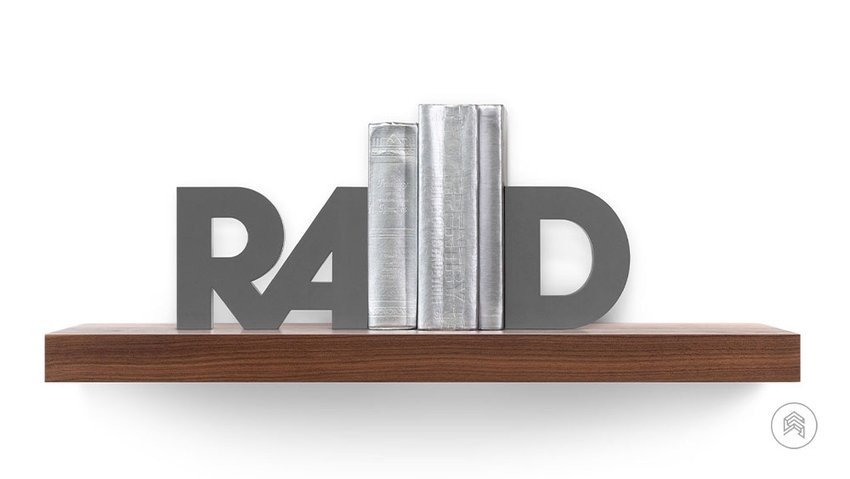
To follow up on the previous point, you’ll also want to consider what your shelf board is made out of. If you want to avoid warping, try to find a shelf made from hardwood, rather than softwood. You’ll be paying more for a hardwood shelf, sure, but that extra investment directly translates to strength. So, weigh your options and decide what’s best for your own home.
Read More:
Strength Factor #4: The Depth of Your Shelf Board
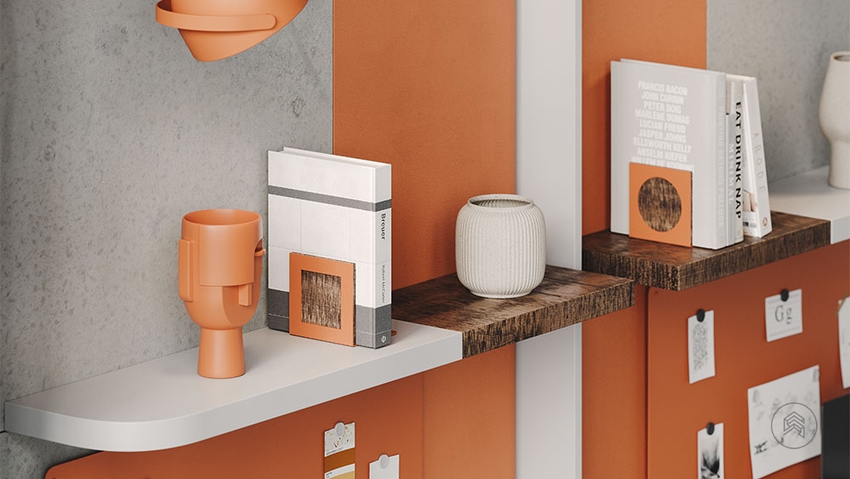
Yep, this is going to affect the strength of your shelf, too, unfortunately. Luckily, books aren’t that deep, so you can definitely get away with a shallow shelf if you want to. Let’s take a look at why this is the case so you can understand why we say this.
This is a basic principle of physics, so hang tight while we show you an example. Let’s imagine a see-saw at the playground. A 50-pound child is on one end, and no one is on the other. The side with the 50-pound child is obviously down on the ground. We can think of this like our shelf anchor weighted for 50 pounds.
If we put a 50-pound child right next to the fulcrum (the center of the see-saw), there won’t be nearly as much force as if we put the child on the opposite far end of the see-saw. This is the same principle as floating shelving. The further away your books are from the wall’s attachments, the more final force is being applied to the hardware.
If this was all a bit confusing, don’t worry. Just take our recommendation at face value: for a bookshelf, don’t get a deep shelf—it’s not necessary.
Strength Factor #5: Books Are Friggin’ Heavy!
This is something that many people forget: weigh your books before you put them up on the shelving! A small stack of books can very quickly get up to 25 or 50 pounds. And if you aren’t rocking a heavy-duty shelf that meets the above requirements, be extra careful.
Read More:
So, Are Floating Shelves Strong Enough for Books?

Yep! For example, Aksel Floating Shelf System is designed to support ginormous weight: Aksel is available in a variety of solid hardwood options and incorporates our über-strong Aksel floating shelf brackets. Made from ¼" hot rolled all-American steel, Aksel HD brackets have solid back bars professionally designed to line up with 16" studs. Notice how the bracket fits snugly into the back of the shelf? That’s not just good-looking for show. No, the lock and key fit not only provides support across the wall when installed, but the support rods extending into your shelf create the backbone required to stay level and support the shelf. When installed into studs and blocking, you’re going to get the max capacity out of your shelf. Your entire Manga collection will rest easy.
Check out this bodacious Aksel floating bookshelf install from Bette Abbott interiors. Talented photog Sarah Anne Risk captures exactly what we’re talking about here. Bibliophiles, unite! I mean, come on, is there anything more beautiful than a wall of books?! It makes me happy just thinking about it! No question that these White Aksel Floating Shelves and their partner brackets are more than capable of holding this collection of books for years to come.
So, which Aksel Floating Shelf is right for your bookshelf needs? Let’s talk numbers!
To find out how many Penguin Classics your shelf can hold, base your weight capacity on that famous support “backbone” that will be inside your shelf system: the Aksel HD. Our cadre of Shelfologists recommends a 10" deep and 1.75" thick shelf to get the most weight capacity for your Encyclopedia Britannicas. You’ll start with a minimum of 90 lbs and each successive bracket size will have you going upwards of 100 pounds in strength as your shelf grows in length. Check out the specs here: Aksel HD floating shelf systems.
When planning for your bookshelves, it’s important to remember: generally, the deeper your floating shelf is, the less weight it can hold, or the stronger the floating shelf bracket needs to be. For example, if you are floating a bookshelf, typically your shelf won't need to be deeper than 10" since most books are less than 9" deep. Use this rule to plan your depth and pull the greatest amount of weight from your bookshelf project.
Read More:
Bottom line: CAN a floating shelf support a pile of books? It depends. If you purchase a cheap, unworthy shelf or don’t install it properly… probably not! We recommend that you don’t skimp and don’t take any chances. Whether your shelf is un petit choux for Winnie the Pooh, or a full-wall floating library, Shelfology has the shelves to house everything from Frankenstein to those Wheel of Time novels you’ve packed away. Let’s break out those beauties and give them a new home!
Ready to get started? Check out our full selection of floating shelves. Need help choosing? Our friendly neighborhood Shelfologists are experts in this department and would love to talk through dimensions, capacity, and other shelf maths!







